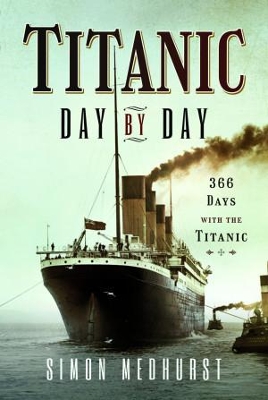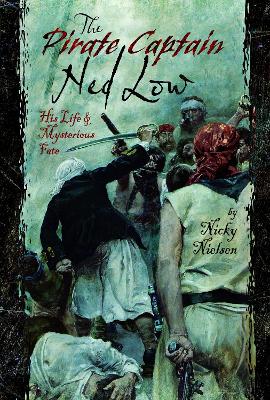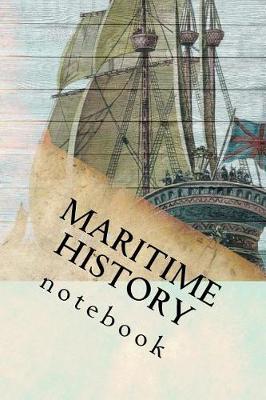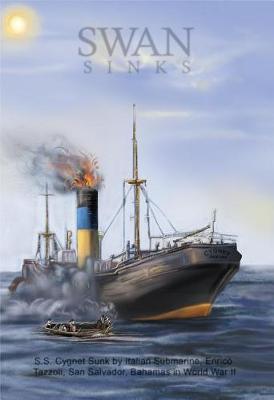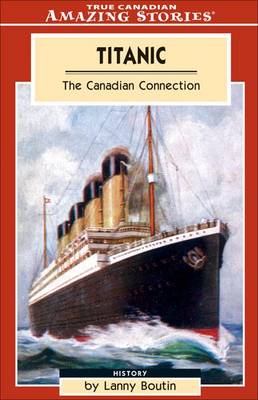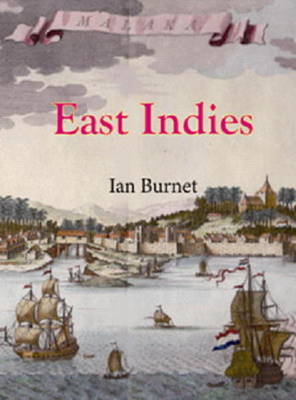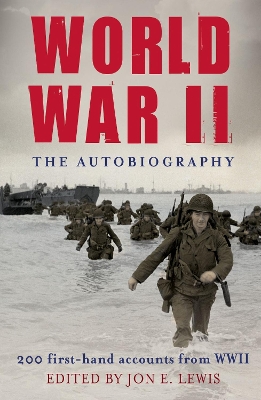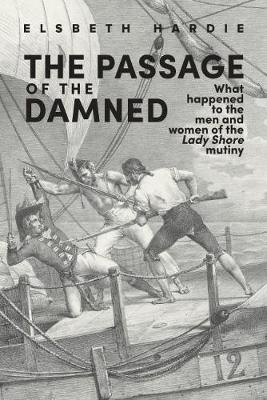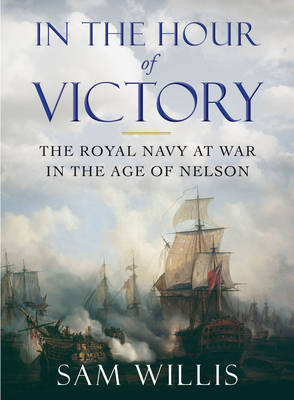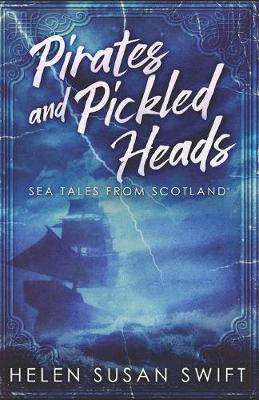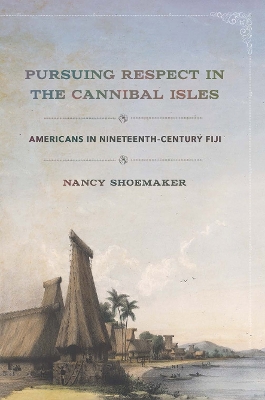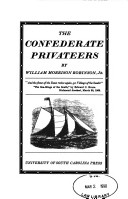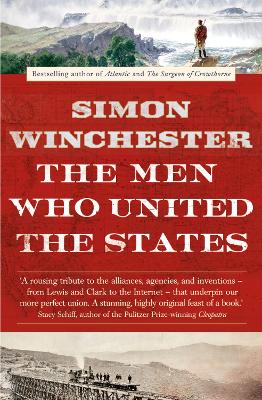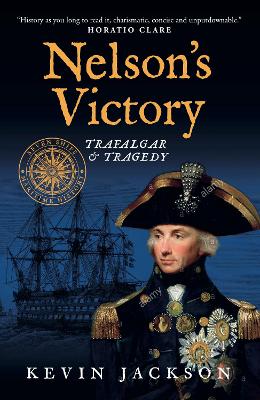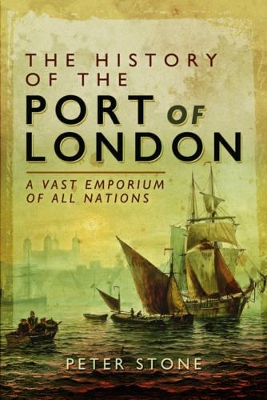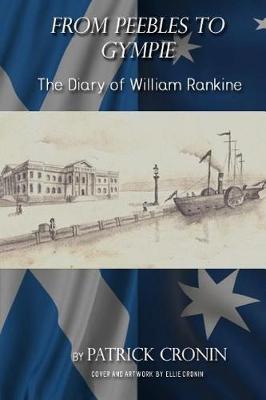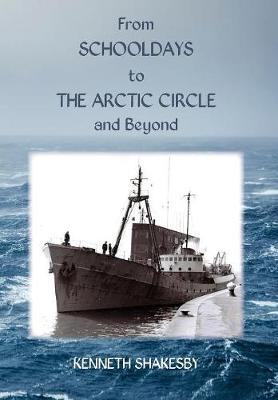After the Titanic sank on 15 April 1912, the story hit the headlines worldwide. Details of the tragedy were displayed on the front pages of every newspaper and magazine, and were talked about in every home. The events that happened on that fateful night should never be forgotten. In this unique book, each page is filled with information for every Titanic enthusiast, whether seasoned or a beginner. For each day of the year, there are births and deaths of passengers and crew alongside relevant ne...
Edward �Ned' Low's career in piracy began with a single gunshot. While working on a logging ship in the Bay of Honduras the quick-tempered Ned was provoked by the ship's captain. He responded by grabbing a musket and inciting a mutiny. Then the London-born sailor and a dozen of his crewmates held a council, stitched a black flag and voted to make war against the whole world preying on ships from any nation, flying any flag. Low's name became synonymous with brutality and torture during the 1720s...
Brede Intermediate Lifeboats (Lifeboat Design and Development, #6)
by Nicholas Leach
From Captives to Consuls (Studies in Early American Economy and Society from the Library Company of Philadelphia)
by Brett Goodin
From 1784 to 1815, hundreds of American sailors were held as "white slaves" in the North African Barbary States. In From Captives to Consuls, Brett Goodin vividly traces the lives of three of these men-Richard O'Brien, James Cathcart, and James Riley-from the Atlantic coast during the American Revolution to North Africa, from Philadelphia to the Louisiana Territories, and finally to the western frontier. This first scholarly biography of American captives in Barbary sifts through their highly cu...
This book follows the trade winds, the trade routes, and the port cities across the East Indies and the Orient. High finance, piracy, greed, ambition, double dealing, exploitation all is here. Driven by the search for spices, silks, gold, silver, porcelains and other oriental goods the Portuguese trading monopoly was challenged by the Dutch East India Company and then the English East India Company, the worlds first joint stock and multi-national trading companies. The struggle for supremacy bet...
A remarkable series of over 200 eye-witness accounts taken from diaries, letters, speeches, interviews and memoirs of those who were there: pilots, sailors, generals, infantrymen, war correspondents and leaders. These include Spitfire pilot Richard Hillary's account of bailing out of his plane in the Battle of Britain; a German sailor's view of HMS Royal Oak being torpedoed at Scapa Flow; insights into Rommel's ailing health from a lieutenant in the Afrika Korps; famous war correspondent Ernie P...
The southern hemisphere is mainly land. So said medieval Europeans, raised on a heady brew of folklore, biblical revelation and geographical theory. It is how they imagined it. So powerful was the hold of this received wisdom that when geographical discoveries, however insignificant, were made in the southern oceans, they were greeted as evidence that the expected continental landmasses, rich and fertile, might at last have been found. This predisposition was mercilessly exploited by writers wit...
In an extraordinary move, in 1797, the British government pressed a small group of French and German prisoners of war into the New South Wales Corps, gave them firearms and placed them as guards on a ship carrying sixty-six convict women and two convict men to New South Wales. The result was a mutiny some months into the voyage in which the captain of the Lady Shore was killed and the fates of all of those on board were tied together when the ship was taken to South America. The true story of wh...
British Slaves and Barbary Corsairs is the first comprehensive study of the thousands of Britons captured and enslaved in North Africa in the early modern period, an issue of intense contemporary concern but almost wholly overlooked in modern histories of Britain. The study charts the course of victims' lives from capture to eventual liberation, death in Barbary, or, for a lucky few, escape. After sketching the outlines of Barbary's government and society, and the world of the corsairs, it descr...
When Napoleon eventually died in exile, the Lords of the Admiralty ordered that the original dispatches from seven major fleet battles-The Glorious First of June (1794), St Vincent (1797), Camperdown (1797), The Nile (1798), Copenhagen (1801), Trafalgar (1805), and San Domingo (1806)-should be gathered together and presented to the nation. These letters, written by Britain's admirals, captains, surgeons, and boatswains and sent back home in the midst of conflict, were bound in an immense volume,...
Pursuing Respect in the Cannibal Isles (The United States in the World)
by Nancy Shoemaker
Full of colorful details and engrossing stories, Pursuing Respect in the Cannibal Isles shows that the aspirations of individual Americans to be recognized as people worthy of others' respect was a driving force in the global extension of United States influence shortly after the nation's founding. Nancy Shoemaker contends that what she calls extraterritorial Americans constituted the vanguard of a vast, early US global expansion. Using as her site of historical investigation nineteenth-century...
The Confederate Privateers (Classics in Maritime History)
by William Morrison Robinson
Recounts how the Confederacy made use of privateers, and describes the Union response.
From bestselling author Simon Winchester, the extraordinary story of how America was united into a single nation. For more than two centuries, E pluribus unum - out of many, one - has been featured on America's official government seals and stamped on its currency. But how did America become 'one nation, indivisible'? In this monumental history, Simon Winchester addresses this question, introducing the fearless trailblazers whose achievements forged and unified America. Winch...
Colonial Naval Culture and British Imperialism, 1922-67 (Studies in Imperialism)
by Daniel Spence
Naval forces from fifteen colonial territories fought for the British Empire during the Second World War, providing an important new lens for understanding imperial power and colonial relations on the eve of decolonisation. With sources from Britain, the Caribbean, Africa and Asia, this book examines the political, social and cultural impact of these forces; how they fortified British 'prestige' against rival imperialisms and colonial nationalisms; the importance of 'men on the spot', collaborat...
Nelson's Victory: Trafalgar & Tragedy (Seven Ships Maritime History, #4)
by Kevin Jackson
The River Thames has been integral to the prosperity of London since Roman times. Explorers sailed away on voyages of discovery to distant lands. Colonies were established and a great empire grew. Funding their ships and cargoes helped make the City of London into the world's leading financial centre. In the 19th century a vast network of docks was created for ever-larger ships, behind high, prison-like walls that kept them secret from all those who did not toil within. Sail made way for steam a...
Fairey Marine : Boats, Raceboats, Rivals and Revivals 3rd Edition
by Charles Lawrence
An interesting and insightful book exploring the author's efforts to follow in his father's footsteps and succeed in the tumultuous fishing industry. The reader is invited to experience the author's life as a Hull trawlerman; from his first trip out as a teenager, to achieving the highest rank of skipper. The intense highs and lows in between are relayed in great detail, with photographs adding to the reading pleasure. This is a story of hard work, courage, and the importance of following yo...
